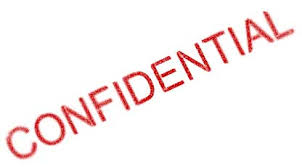
“Practice. Study your recorder and your microphone and learn how they “listen” and record. Then, understand how to optimize the quality of your recording so you can adapt to any recording situation.” Doug Boyd PhD, Director, Louie B. Nunn Center for Oral History, University of Kentucky Libraries

I lead in with a quote from Doug Boyd, as evidence that this is not just a self-serving transcription service telling you what to do with your recording and interview techniques, but one of the pre-eminent scholars in the oral history world (and in full disclosure one of our clients who agreed to offer his two cents on interviewing and recording techniques) who spends his professional life making sure he’s able to capture high-quality interviews for archival purposes – while aggressively monitoring the overall dollars he spends on his projects. Our motives, quite frankly, are a bit selfish. By having the best audio to work with, our reputation as a high quality transcription service is enhanced. But equally important is helping you find ways to record archival quality audio/video, and at the same time conserving your all- important budget dollars. Additionally, on a more personal level for us, we want to save our transcriptionists’ ears and their sanity as well.
The key in all of this –
You or whoever is conducting your interviews needs to help us
in this improvement and financial conservation process.

We guestimate that
30%of the
audio we receive each year is recorded as if the people talking are standing at the bottom of a well, and then are conversing with one another through the technological wonders of tin cans and string. Maybe we exaggerate things (just slightly), but it is to prove a point. If it wasn’t for those
darn confidentiality agreements we’d be more than happy to share examples of this poor quality audio, ergo transcripts, with you as well.

Instead, we’ll do our best to offer some (what we think are)
common sense tips, and as backup to our points, some
key thoughts from
experts in the art of
recording and
interviewing, answering the question of,
“If you only had one thing you could tell someone to help them improve their interviews to get the best interview recording possible, what would it be?” You’ll see the challenge in their replies is that not many of them were able to keep their list to one thing. In full disclosure, the quotes are not just from people who are experts in their field, but from people who are also our clients. Who better to learn from than the people who are recording and interviewing in the best manner possible. But first, here’s our bullet point take on it.
· Above all else: Use Common Sense (If only everyone would use some common sense)
- Test out the recording device and all of its features before using it.
- Place the recorder closer to the interviewee than to the interviewer.
- Check the batteries (if there’s no power chord), and bring extra batteries!
- Bring an extra memory card
- Don’t talk over the interviewee – let them complete their thought, and then follow-up.
- Pay attention to the place of the recording
- Is there ambient noise to be concerned with?
- Is the location in a quiet room, but under an air conditioner?
- Is the location a noisy coffee shop (chatter, dishes, etc.)?
- Will external conversations be picked up by the recording device?
- Be prepared with questions to keep your interview as cohesive as possible
- Don’t forget to bring and use a backup recorder (if possible).
See, we believe all these aforementioned bullet points are common sense, and we don’t know how else to classify them. Our clients/the experts also offer some excellent points to implement in the interview and recording process, and we know you’ll find them helpful as well.
 “
“The most important thing to keep in mind when interviewing is that
capturing the interviewee’s testimony is the primary goal. A recorder should therefore be placed 2 feet from the interviewee, pointed at their mouth.” –
Robert Budd, Memories to Memoirs (He got his Master’s Degree in the field!)
“I have told people before in oral history workshops to go ahead and spend the extra money and get two separate microphones – one for the interviewer and one for the interviewee – and make sure they are both the best quality that you can afford.” –Anonymous (do to the aforementioned confidentiality concerns, this client/expert prefers to remain anonymous, but did want their thoughts to be included.)

“Even on days where you’re most excited to get the interview started, be sure to spend the additional time it takes to
test all of your audio equipment – in that specific setting, with that particular individual – before you dive into your conversations.” —
Samuel J. Redman, Academic Specialist and Lead Interviewer for the Rosie the Riveter World War II Home Front Oral History Project, Regional Oral History Office, UC Berkeley
“Do as much research as time and money allow to avoid superficial questions and answers and probable frustration of the interviewee.” –Sally Smith Hughes, Academic Specialist, Science and Technology, Regional Oral History Office, UC Berkeley
“Know your recording equipment so well that you can be 99 percent focused on the interview and 1 percent focused on the equipment.”–David Dunham Project Manager, WWII Home Front Oral History Project – Regional Oral History Office, UC Berkeley Web/Video Director
Take the time to implement these helpful ideas, and you’ll find in the long term you’ll have better quality recordings and more accurate transcripts that save you time, money, and our transcriptionists’ headaches.










